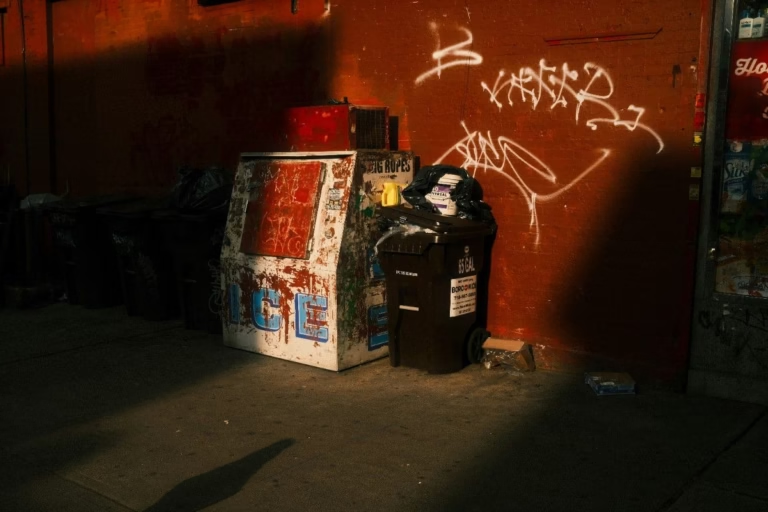What Happens If You Die Without a Will?
No one likes thinking about death but ignoring it doesn’t make the consequences go away. If you die without a will, the legal system decides what happens to everything you leave behind. That includes your house, your money, your personal items, and even who will raise your children if they’re minors.
In legal terms, dying without a valid will is called dying intestate. And when that happens, your state’s intestate succession laws take over. These laws are designed to create a logical distribution plan, but they don’t consider your wishes, your relationships, or your family dynamics.
This article breaks down exactly what happens when there’s no will and why having one is critical for peace of mind.
What Is Intestate Succession?
Intestate succession refers to the state-imposed legal order for distributing your property when you die without a will.
Each state in the U.S. has slightly different rules, but most follow a similar hierarchy: your closest family members inherit first, starting with your spouse and children.
Common Order of Succession:
- Spouse
- Children
- Parents
- Siblings
- Extended family (nieces, nephews, cousins)
If no living relatives can be found, your estate may eventually go to the state a process called escheat.
What Happens to Your Property?
Without a will, the court appoints an administrator (usually a close family member) to handle your estate. This person works with the probate court to:
- Inventory your assets
- Pay your debts and taxes
- Distribute what’s left according to state law
Real-life example:
Let’s say Michelle dies without a will. She’s divorced with two adult children and owns a house. Under most state laws, her children would split the house and remaining assets 50/50. If Michelle wanted one child to have the home and the other to receive cash, it won’t matter that intention wasn’t legally documented.
Guardianship of Minor Children
Perhaps the most emotionally loaded issue: Who raises your kids if you’re not around?
If you don’t name a legal guardian in a will, the court will decide. Judges prioritize the child’s best interests, but that can lead to:
- Family disputes if multiple relatives apply
- A child being placed with someone you wouldn’t have chosen
- Temporary foster care during the legal process
If you’re a parent, this is one of the strongest reasons to make a will today. You don’t want a stranger in court deciding who gets custody of your kids.
What About Non-Married Partners?
Here’s where things can get even more complicated. Unmarried partners typically inherit nothing under intestate laws.
If you’re in a long-term relationship but not legally married, your partner could be left:
- Without a home (if the property was in your name only)
- Without financial access
- In conflict with your legal heirs
A will (or trust) is the only way to ensure your partner is protected when you’re gone.
Debts, Taxes, and Legal Costs
When you die, your debts don’t just disappear. Before your family receives anything, your estate must:
- Pay off any outstanding debts
- File final tax returns
- Cover probate fees and legal costs
If the process drags on or assets must be sold to cover debts, your heirs may receive less or nothing at all.
Note: Life insurance and retirement accounts with named beneficiaries typically bypass probate, but they still need to be properly coordinated.
Family Conflicts and Legal Disputes
One of the biggest downsides to dying without a will? The emotional toll on your family.
When intentions aren’t clear, it often leads to:
- Fighting over assets
- Disputes about guardianship
- Long, expensive court battles
Even in close families, grief can turn small misunderstandings into long-term resentments. A will provides clarity and can help prevent conflict before it starts.
What If You Have a Blended Family?
Intestate succession doesn’t always play nice with blended families. Stepchildren, for example, usually don’t inherit anything unless they’ve been legally adopted.
So if you’re remarried and want your stepkids treated like your biological kids, that has to be written into a legal plan.
Scenario:
Mark is married to Sarah, and they each have two children from prior marriages. If Mark dies without a will, his biological kids inherit everything. Sarah and her kids may be left out even if Mark supported them for years.
Why Intestacy Leaves So Much to Chance
Here’s a truth most people don’t realize: intestate laws are designed for simplicity, not fairness. They don’t reflect modern family structures, emotional bonds, or personal priorities.
You could have:
- A friend who’s like family
- A child with special needs
- A sibling in crisis who needs extra support
- A favorite charity you want to support
None of that matters without a legal plan.
Avoiding Intestacy: Your Options
The good news? Avoiding intestacy is simple.
Here’s what you can do:
- Create a will: The simplest way to control who gets what.
- Set up a trust: For more privacy and to avoid probate.
- Name guardians: To ensure your kids are cared for by the right people.
- Update beneficiary designations: For life insurance, retirement accounts, and payable-on-death accounts.
Estate planning isn’t just for the wealthy. It’s for anyone who wants a say in what happens to their family, property, and legacy.
Final Thoughts: Your Wishes Deserve to Be Heard
If you care about your family, don’t leave these decisions up to the court. A simple will can make all the difference. It protects your loved ones, preserves your intentions, and prevents unnecessary conflict.
You don’t have to figure it all out alone there are estate planning attorneys, online will services, and affordable options for nearly every budget.
Take control now, while you can. Your future self and your family will thank you.
Next up: Why Every Parent Needs a Will and Medical Directive — Learn how to safeguard your kids and your own medical decisions before it’s too late.




